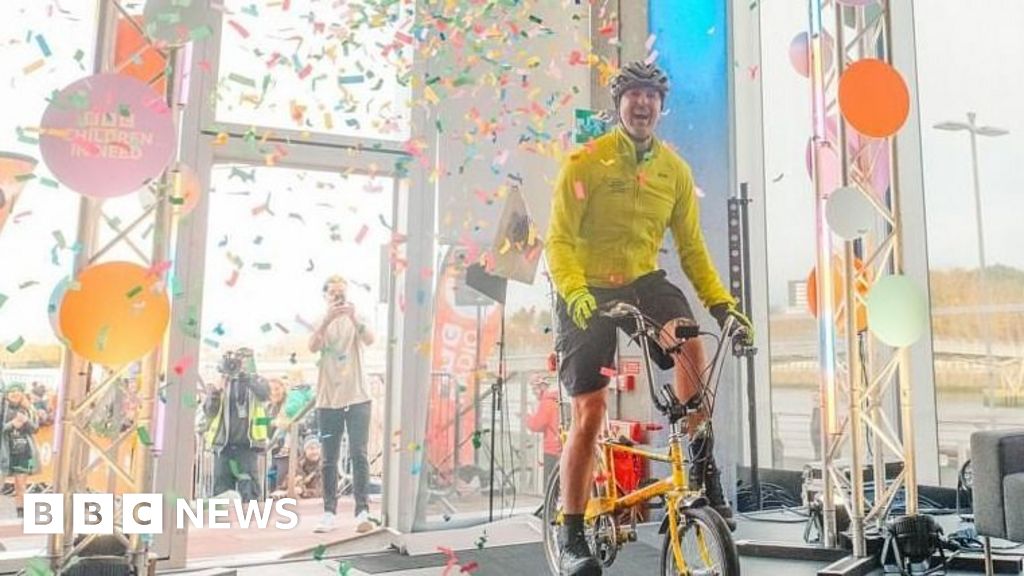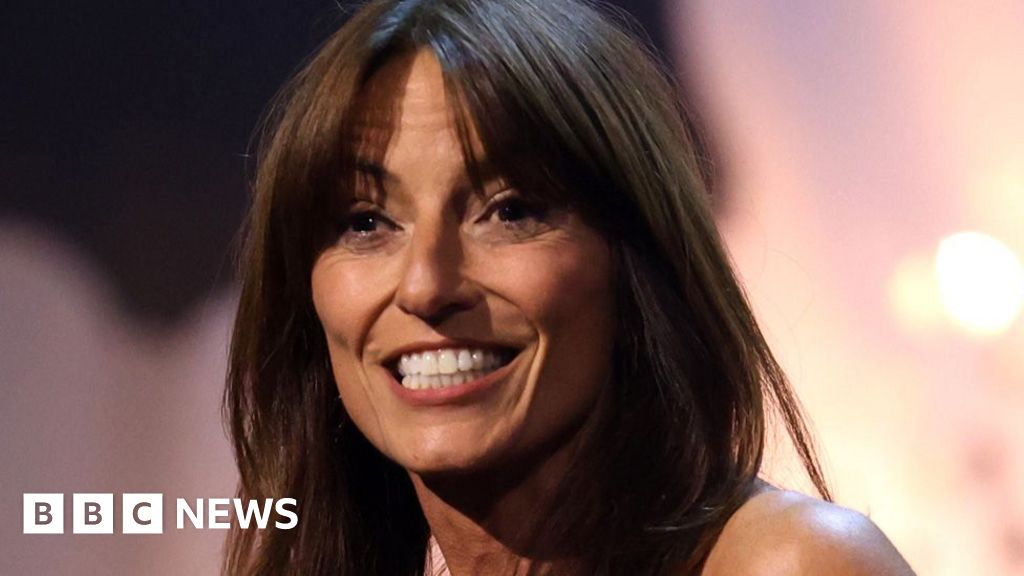ARTICLE AD BOX
By Steven McIntosh
Entertainment reporter
Theroux estimates he has been thrown out of interviews "10 or 15 times"
Louis Theroux has said he "wrestled" with the issue of whether to amplify extreme voices in his new series.
Forbidden America, set to air on BBC Two, sees the film-maker interview people on the fringes of US society.
Theroux said he was aware of the criticism often levelled at him that he gives people with controversial views a bigger platform by interviewing them.
But he said: "This phenomenon exists in the world, and by not reporting on it, it's not going to go away."
Theroux's new series consists of three episodes, each with a different theme. One focuses on young men with far-right views, and studies the role the internet has played in helping them take their message to a mass audience.
The other episodes explore issues of consent in the porn industry and the impact of trap music, a subgenre of hip-hop with lyrics that often glorify gun violence and drug use.
Theroux speaks to far-right political commentator Nick Fuentes in Forbidden America
Tom Lamont of The Guardian previously questioned whether Theroux was a journalist who "provided a platform that normalised objectionable behaviour".
"I'm thinking of his films on the proudly homophobic Westboro congregants," Lamont wrote, "or those in which he has given a lot of room to high-profile men who have later been revealed as criminals (Jimmy Savile, Max Clifford, Joe Exotic) or men known to have abusive pasts."
Theroux's interviews with members of the Westboro Baptist Church brought their inflammatory views to British viewers in his 2007 documentary The Most Hated Family in America, while his films about figures such as Savile offered a glimpse into their lifestyles before their criminality was not known to the public (or to Theroux).
The Huffington Post's Rachel McGrath noted how, when another Theroux series was broadcast in 2019, several viewers complained on Twitter about the air time given to some of his subjects.
Image source, Getty Images
Image caption,Naga Munchetty and Sophie Raworth presented Louis Theroux and producer Arron Fellows with a Bafta Award in 2019
In a Q&A with journalists ahead of the launch of Forbidden America, Theroux was asked whether he worried that he was boosting voices that some viewers would prefer were silenced.
"That's a great question and it's something we've wrestled with a lot," he said. "The first point would be that, these voices are already amplified, right? I mean, they already have access to hundreds of thousands, if not millions, of tender young ears, eyes and minds, with the internet.
"So this phenomenon exists in the world, and by not reporting on it, it's not going to go away.
"The other thing to say is, I believe that with the experience I've had with telling these stories over the years, I can bring a kind of critical, forensic, journalistic set of skills.
"I can interview and put a programme together in such a way that people will be given a sufficient interrogation to mean that most reasonable people will see it and will realise what it already means [and] the way it represents ways of thinking which are dangerous or poisonous or harmful.
"It's not like, oh, I'm just going to put them on a platform and give them an unexamined chance to reach lots of people."
Theroux came to prominence with the series Weird Weekends, which examined American subcultures, and has now been making documentaries for more than two decades. He holds dual British and American citizenship, and a lot of his subjects and material have come from the US.
The 51-year-old is back on TV after a year of not being able to travel due to Covid lockdowns. During that time, he conquered the podcasting world instead, with his BBC series Grounded hitting the top of Apple's chart.
Later this year, Theroux will executive produce a BBC documentary about Joe Wicks that will see the fitness star discuss his parents' battles with OCD and drug addiction.
Whether he's interviewing celebrity guests or controversial figures in public life, Theroux has an approach that makes people want to open up. Some have chalked this up to his gentle nature or seemingly naive tone of voice, which masks a sharp journalistic mind.
"A big part of the job is building rapport," Theroux suggested. "It doesn't always happen the way you want, but what you find is, if you go in as a sympathetic presence, or at least listening and paying attention, people for the most part are happy to open up and feel grateful for you being there."
Theroux will executive produce Joe Wicks: Mental Health, My Family and Me later this year
Things don't always go according to plan, however. Theroux has often been thrown out of interviews for asking questions the subject deems too probing and intrusive.
His latest series is no exception. One interviewee in the first episode, titled Extreme and Online, becomes so angry at Theroux's suggestion that he had given a Nazi salute (something he denied and said was meant to be more of a military salute), that he threw Theroux and the film crew off his property.
"Suddenly I'm being thrown out... it was surreal and a little bit sad in a way," Theroux recalled. "It's happened to me over my career probably 10 or 15 times, I've been thrown out of an interview or someone's put his hand over the camera or told me to [get lost].
"As a sensitive person, it never feels that good. I don't enjoy people who are visibly upset. And at the same time, it is what it is, and you realise that it will make explosive and probably entertaining footage."
Louis Theroux's Forbidden America begins on Sunday, 13 February at 21:00 GMT on BBC Two and iPlayer.

 2 years ago
27
2 years ago
27








 English (US)
English (US)